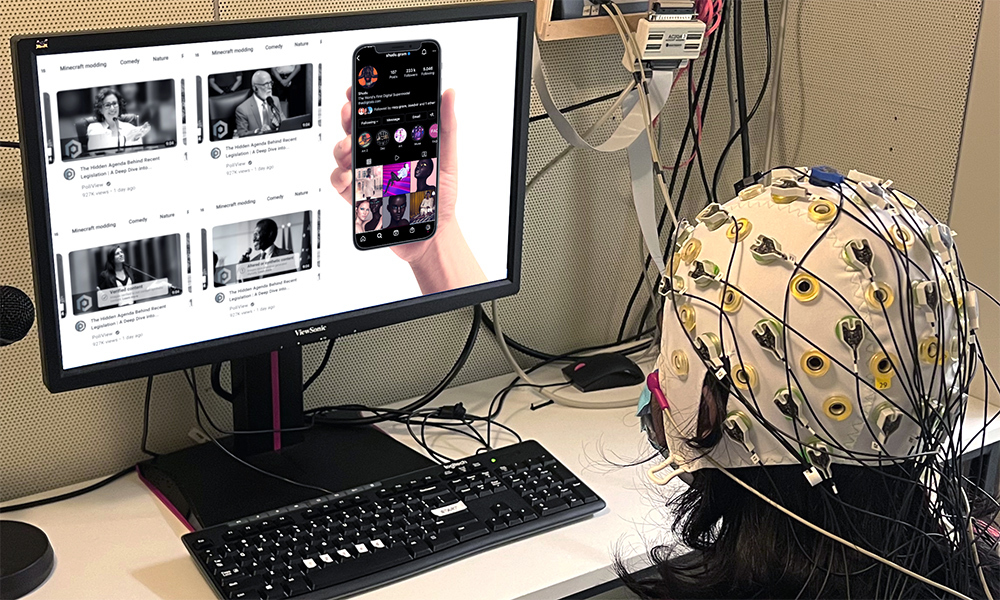Human brains and the machine: Lessons from EEG studies of artificially generated images
14. November 2024Guest lecture by Prof. Colin Conrad (Dalhousie University, Canada)
Zeitraum
14.11.2024, 11:00 Uhr
Ort
FernUniversität in Hagen, Immersive Collaboration Hub, Universitätsstr. 23 (Gebäude 6), 58097 Hagen
Generative artificial intelligence (GAI) is one of the most exciting technologies of this decade. However, as it became mainstream, there was deeper public and academic attention to its usability. One dimension of the usability of the technology, cognitive factors, has so far not been widely explored in the literature, even though it could have notable implications for how we design and use systems with GAI.
In this talk, we will discuss the results of two electroencephalography (EEG) studies of brain patterns associated with the interpretation of pictures that were produced by generative AI. In the first study, we explored what happens in the brain when users perceive artificially generated images of virtual influencers. We found EEG patterns associated with perceived uncanniness and emotional affect. In the second study, we observed responses to artificially generated images of politicians, as well as notifications about their accuracy, and found patterns associated with emotional affect and attention. The implications of the research have found that subtle differences in how we portray artificially generated information can influence cognition. We will also discuss technical considerations for researchers who wish to incorporate EEG into their study designs.
 Foto: FernUniversität
Foto: FernUniversität
Dr. Colin Conrad
Dr. Colin Conrad is an information technology scholar and university educator who is currently serving as an Associate Professor, Co-Director of the College of Digital Transformation, and Principal Researcher of the Cognition and Organizations Research Group at Dalhousie University, Canada. He is expertise spans the information systems, computer science, and cognitive neuroscience disciplines and he oversees novel projects that push disciplinary boundaries, usually related to human factors in educational technology or artificial intelligence. He holds a deep conviction for experiential learning, which drives his educational mission to lead the cultivation of Canada's next generation of interdisciplinary digital talent.


